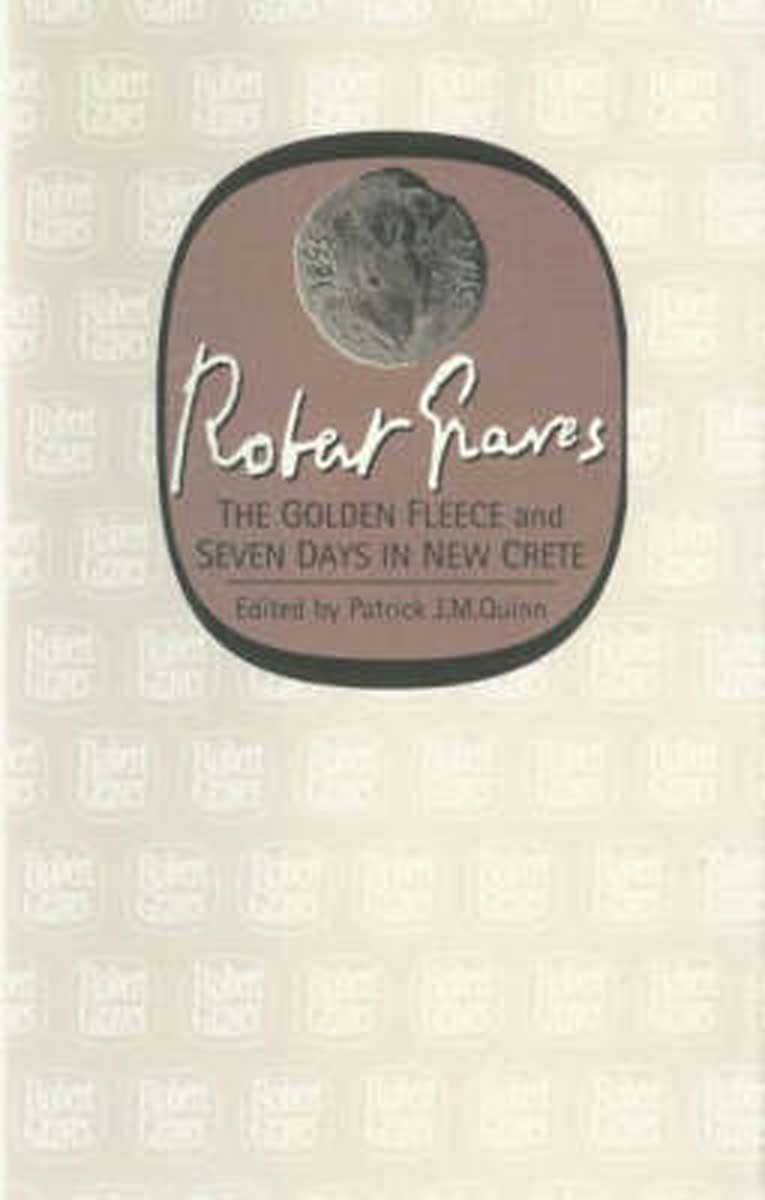"Golden Fleece" and "Seven Days in New Crete"
"In The Golden Fleece" (1944), Robert Graves liberates the tale of Jason and the Argonauts from its status as a children's story and reconstitutes it as a fully fledged epic. He fills his Argo with a colourful, quarrelsome and accident-prone crew, whose mission to recover the Golden Fleece is endangered less by enemies (who, with a little help from the gods, are readily outwitted) than by foibles such as Butes' disastrous fondness for the wrong sort of honey. Hercules, a sulkily temperamental giant, leaves the expedition halfway through, but Medea joins and saves it. The book has the narrative verve and sly wit of Graves's better-known historical novels.
"Seven Days in New Crete" (1949; also published as Watch the North Wind Rise) is, unusually among Graves's novels, set in the future; but it is the exact opposite of science fiction, for the New Cretans have abandoned twentieth-century technology in favour of a magical, matriarchal society in which wars are conveniently fought between breakfast and tea and casualties can be swiftly reborn. The time-travelling narrator, a distinctly Gravesian poet called Edward Venn-Thomas, is the bringer of necessary chaos. His job it is to disrupt a benign, complacent world with unsettling creativity, assisted by others with recognisable origins in the author's own life.
Both books belong to the period during which Robert Graves was working on "The White Goddess" (1948), and they share its concerns with matriarchal deities and the creative reinterpretation of mythology.
"Seven Days in New Crete" (1949; also published as Watch the North Wind Rise) is, unusually among Graves's novels, set in the future; but it is the exact opposite of science fiction, for the New Cretans have abandoned twentieth-century technology in favour of a magical, matriarchal society in which wars are conveniently fought between breakfast and tea and casualties can be swiftly reborn. The time-travelling narrator, a distinctly Gravesian poet called Edward Venn-Thomas, is the bringer of necessary chaos. His job it is to disrupt a benign, complacent world with unsettling creativity, assisted by others with recognisable origins in the author's own life.
Both books belong to the period during which Robert Graves was working on "The White Goddess" (1948), and they share its concerns with matriarchal deities and the creative reinterpretation of mythology.
About the author
Robert Graves (1895-1985), poet, classical scholar, novelist, and critic, was one of the greatest writers of the 20th Century. Athough he produced over 100 books he is perhaps best known for the novel "I, Claudius" (1934), "The White Goddess" (1948) and "Greek Myths" (1955).
Robert Graves was born in Wimbledon, South London. His father, Alfred Percival Graves, was a school inspector, and his mother, Amalie von Ranke Graves, was a great-niece of the German historian Leopold von Ranke (1795-1866). He was educated at Charterhouse, and awarded a B. Litt by St. John's College, Oxford after his return from World war I, where he served alsongside Siegfried Sassoon.
Robert Graves died in 1985 in Deja, the Majorcan village he had made his home (with the exception of the Spanish Civil War and the Second World War) since 1929.
Robert Graves was born in Wimbledon, South London. His father, Alfred Percival Graves, was a school inspector, and his mother, Amalie von Ranke Graves, was a great-niece of the German historian Leopold von Ranke (1795-1866). He was educated at Charterhouse, and awarded a B. Litt by St. John's College, Oxford after his return from World war I, where he served alsongside Siegfried Sassoon.
Robert Graves died in 1985 in Deja, the Majorcan village he had made his home (with the exception of the Spanish Civil War and the Second World War) since 1929.


